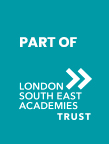Term Dates
2025-2026
Autumn Term 1 - Monday 1 September 2025 - Friday 17 October 2025
- Monday 1 September (Staff Inset)
- Tuesday 2 September (Year 7’s ONLY)
- Wednesday 3 September (Year 7’s & 11’s ONLY)
- Thursday 4 September (Whole School Returns)
- Friday 3 October - Parent's Day
Half Term - Monday 20 October 2025 - Friday 31 October 2025
Autumn Term 2 - Monday 3 November 2025 – Friday 19 December 2025
- Friday 19 December (13:15 Finish)
Christmas Break - Monday 22 December 2025 - Friday 2 January 2026
Spring Term 1 - Monday 5 January 2026 - Friday 13 February 2026
- Monday 5 January 2026 (Staff Inset)
- Tuesday 6 January 2026 (Staff Inset)
Half Term - Monday 16 February 2026 - Friday 20 February 2026
Spring Term 2 - Monday 23 February 2026 – Friday 27 March 2026
- Monday 23 February 2026 (Staff Inset)
- Friday 27 March - Parent's Day
Spring Break - Monday 30 March 2026 - Friday 10 April 2026
Summer Term 1 - Monday 13 April 2026 – Friday 22 May 2026
- Bank Holiday - Monday 4 May 2026
Half Term - Monday 25 May 2026 – Friday 29 May 2026
Summer Term 2 - Monday 1 June 2026 – Friday 17 July 2026
Summer Break - Monday 20 July 2026 – Wednesday 2 September 2026
2026-2027
Autumn Term 1 - Wednesday 2 September 2026 - Friday 16th October 2026
Half Term - Monday 19 October 2026 - Friday 30 October 2026
Autumn Term 2 - Monday 2 November 2026 – Friday 18 December 2026
- Friday 18 December (13:15 Finish)
Christmas Break - Monday 21 December 2026 - Friday 1 January 2027
Spring Term 1 - Monday 4 January 2027 - Friday 12 February 2027
- Monday 4 January 2027 (Staff Inset)
Half Term - Monday 15 February 2027 - Friday 19 February 2027
Spring Term 2 - Monday 22 February 2027 – Thursday 25 March 2027
Spring Break - Friday 26 March 2027 - Friday 9 April 2027
Summer Term 1 - Monday 12 April 2027 – Friday 28 May 2027
- Bank Holiday - Monday 3 May 2027
Half Term - Monday 31 May 2027 – Friday 4 June 2027




